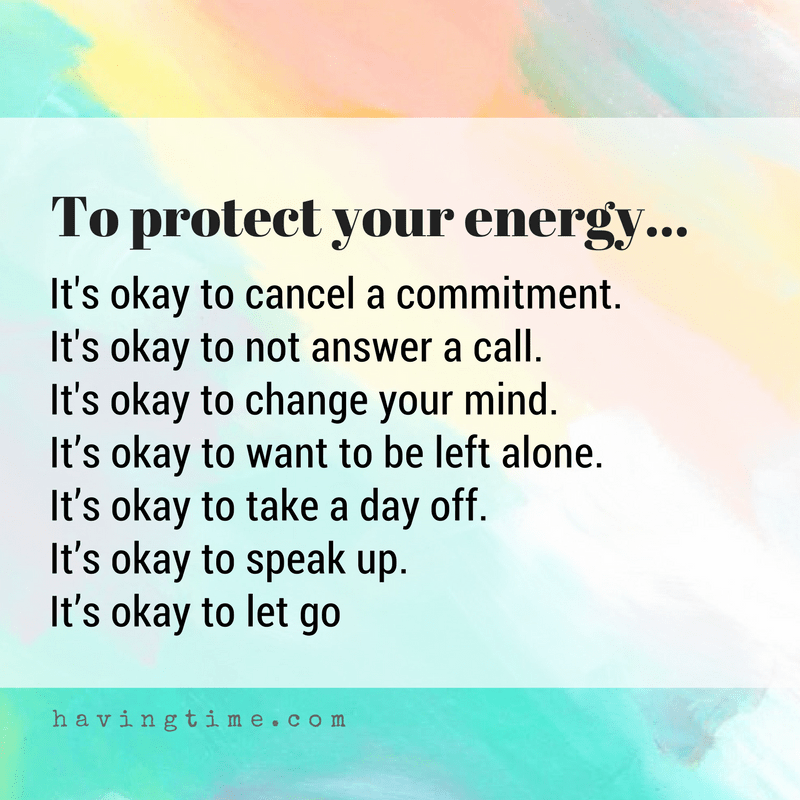Passion is energy. Feel the power that comes from focusing on what excites you. – Oprah Winfrey
Take a look at these three scenarios:
- Mark would like to run his first marathon.
- Jane is very passionate about knitting for babies and she would like to become a popular blogger in that topic.
- Tom loves his family very much and he would like to spend much more time with them.
In each of these scenarios, the people above know precisely what they want. Yet, they all share the same issue which prevents them enjoying doing what they love:
They don’t have enough time for the things they love.
Mark is occupied with other hobbies in his life, so he can’t devote the necessary time to running practices.
Jane has her hands full with her baby, so she can’t find the time for her passion.
Tom, on the other hand, is working too much and he rarely has time to spend with his kids or his wife.
All these people are stuck. They know what they want, but still, they can’t find time to focus on the things they value.
If you are in a similar situation like this, let me suggest few ways how you can reclaim fun, passion and happiness back into your life.
8 Smart Ways to Make Room for Fun and Passion in Your Life
1. Reduce Your Commitments
Make sure you understand the commitments you have. List all of them and find ways to reduce the number of commitments you are burdened by.
For instance, I was asked to become a president of our local computer club, but I politely declined.
I didn’t want to have yet another thing on my plate which takes up my time.
I completely understand if it’s difficult to reject requests as they come, so that’s why the next piece of advice could help you immensely.
Say “no” gently, but firmly
This one little word is probably the simplest, yet the most effective way to guard your time and decline against commitments that you don’t want to have.
The best way to say “no” is by …
Evaluate first

If the request that you receive is non-critical (for instance, no one is asking for your help in an emergency), take some time to think about it properly.
Does the request support your goals somehow? Is your relationship with this other person at stake, if you say “no”?
Only you know the answers to these questions and you only you can decide which the proper answer is.
Be Polite and Firm
If you say “no”, say it politely. Saying it in a rude way will naturally make the message very clear on your part, but is not the best long-term strategy.
Saying “no” the polite way is the better option and means the other person is less likely to be hurt by your response.
NO Room For Second Guessing
Say “no” clearly enough. Don’t leave the other person pondering what your opinion was.
2. Be Selfish in a Good Way
If someone has the right to ask you a request, you have the equal right to decline it.
You know your priorities better than the other person.
Hold yourself accountable to your goals and honor them – by not letting non-essential requests suck up your time.

3. Allocate Time Ruthlessly
Sometimes you just have to carve out some time on your calendar if you want to get something done.
Just block the time (on your calendar) and focus on the area of your life which brings you the greatest joy.
If you are working on your computer, become unavailable for a couple of hours each day. Go offline, don’t open your e-mail and keep your instant messaging software shut.
Just make sure that your spouse or someone else close to you knows how to contact you in a case of an emergency.
4. Be Flexible
If you have a family, you can’t just selfishly disappear and let your spouse take care of the children and the household. Instead, you have to communicate clearly when you are doing what and how much time is going to be spent doing it.
For instance, me and my wife have our own personal hours when we are able to do whatever we wish, during this time we take it in turns to care for our son. This way the hours are spread evenly and neither one of us feels discriminated because of our time usage.
Even if we have our hours, we are also flexible in them. In other words, there could be a situation where one of us has to give his/her personal hours for a family matter, and that’s totally ok.
Obviously, we try to find ways to make it up the lost personal time, but we also understand that one has to be flexible with his/her time as well.
5. Build Supporting Habits
So you have carved out time for your passions but that’s not enough. In fact, to keep yourself from getting distracted and wasting your time, you should build small habits to help you out.
One of the potential ways is to take advantage of mini habits and create new behaviors by implementing them gradually in your life.
For example, say you’d like to start running, but you still find it difficult to actually implement this habit in your life. You could then decide that the mini goal for the next day is just to put the running shoes on.
Once you reach that mini-goal, you find it tempting to take some running steps because you have already started with your activity. And even if you don’t take any steps, you have at least reached your mini-goal for the day.
So what else would be there to implement with mini habits than exercising … let’s see:
- Reading a book on a daily basis
- Waking up earlier
- Implementing a healthy diet
- Keeping your work desk tidy
- Checking out this page for more ideas
Once again, the idea is to break these things into such small pieces so that reaching them becomes very easy and you feel successful every time you reach your daily goal.
6. Limit/Consume TV Moderately
Here is the deal: I’m not against television. I think that when it’s being used moderately, it’s a fine way of spending your time (assuming, that your work for the day is already done).
However, when you go to extreme lengths to watch TV, it’s going to steal the time you’d otherwise have for something more valuable.
Especially when it comes to news, I find that in most of the cases this kind of information is plain useless. If something noteworthy happens, you’ll hear about it anyway, without having to fetch the information yourself.
Decide what is more important: Listening/watching stories about wars and violence or doing the things that you truly love.
7. Become More Organised
Basic organization skills are beneficial to anyone. If you feel you are not a person with great organizing skills, don’t worry.
What I’m talking about is a set of basic habits that help you to save time and give you better focus on your passions.
You could start out with these habits:
- Find a location for every item in your household. This makes finding them easier and you are not wasting your time by finding the items you need.
- Ruthlessly dump the stuff you don’t need. Sell it, donate it, recycle it or take to trash.
- Clean the kitchen table after eating or your work desk after you have finished working. You have to do them at some point, so why not take care of them right away?
- Write down everything: Ideas, tasks or anything that you have to remember later on. You can jot these ideas down on a piece of paper which you can then process 2-3 times per day to a dedicated task list.
- Have at least one thing that you’d like to do the next day – the one thing that gives you pleasure or moves you closer to your goals. Put this item in a task list so that you remember to do it the next day.
8. Wake Up a Bit Earlier
Waking up bit earlier gives you more flexibility and adds other good elements to your daily life.
In order to adjust your wake-up times, do the following:
1. Decide on a target wake-up time
2. Start waking up 5 minutes earlier on a daily basis (say for the next 2-3 weeks)
3. When you feel comfortable waking up 5 minutes earlier, decide to wake up yet another 5 minutes earlier
4. When you repeat the steps 2 and 3, you’ll eventually wake up at your target time
5. If you feel comfortable, you can always wake up more than just 5 minutes earlier every day. The pace is really up to you.
Finally, when you have reached your target wake-up time, you could:
- Read a book
- Plan your day
- Exercise
- Meditate
- Write
- Just have an easygoing morning with your family
The Essence of Proper Time Management
Very often, time management is considered just as a way to get more done, but in reality, it is something completely different.
In fact, it’s a fine way to integrate the good and enjoyable components in your daily life. And in order to do that, you’ll have to use some solid time management strategies.
I have gone through eight strategies in this post, so make sure to implement the advice in your own life – either as is or by creating your own versions of them.
Take action now and witness the fun and passion come back to your life in no time!




